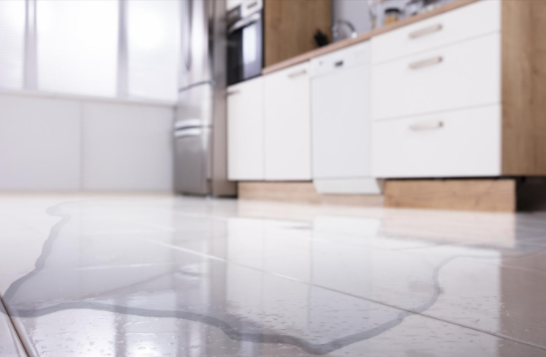As innocuous as water might seem, it has the potential to do major damage to your home. In fact, it can be downright catastrophic Following the 2021 winter storm Uri in Texas, insurance claims due to water damage went from 29 in 2020 to over 450,000.
As if the thought of water damage wasn’t bad enough, there are actually a few different types of water damage, each with its own water damage restoration process. Not familiar with them? Read on to learn everything you need to know! Also, you can prefer quality Drainage Pipes that help to maintain your drainage system.
Category 1 Clean Water
Water damage is graded on a scale created by the Institute of Inspection, Cleaning and Restoration Certification (IICRC).
Clean water damage is the best-case scenario when it comes to water damage restoration. This means that any damage done to your home was done with clean, sanitary water. Clean water damage is usually caused by things like broken pipes, overflowing sinks and bathtubs, or issues with your appliances.
Damage done by clean water is relatively easy to fix, assuming you act promptly to get the water out of your home and dry impacted areas. You don’t have to worry about toxins unless you leave damp areas, enhancing your risk of mold and mildew growth.
Category 2 Greywater
The second IICRC category is for greywater. Greywater is water that is used for things like watering your lawn, filling your toilet, and washing your clothes. It is not necessarily unsanitary, but it is not cleaned by water companies to the same extent as household drinking water.
Clean water changes into greywater when it comes into contact with things like laundry detergent or soap. Greywater has the potential to cause illness and damage your property. It also is known to enhance microbial growth, a condition that escalates over time.
Category 3 Blackwater
The final IICRC category for water damage is blackwater. Blackwater is the worst type of water damage you can have in your home.
Blackwater is water that comes from sewers, contains grease or oil, or that contains urine or feces. It carries tons of bacteria and toxins, as well as viruses. Direct exposure to blackwater is very dangerous, and it can make you and your family very sick.
If your home is flooded with blackwater, it is important to seek help immediately. You may also need to temporarily relocate while repairs are being made to your home to protect your health.
Are You Dealing with One of These Types of Water Damage?
As if dealing with a flooded basement or bathroom wasn’t bad enough, the fact that the flood might contain grey or black water is even more upsetting. If you’re trying to recover from any of these types of water damage, it’s important to contact your local restoration company or a plumber as soon as possible. The quicker you act, the better off you’ll be.
Do you want to learn more about keeping your home safe for the whole family? You’re in the right place. Check out the rest of our blog for the latest news in home and real estate!










![Anso FG Reviews: UPDATED 2024 [ansofg.com] Anso FG Reviews UPDATED 2024 [ansofg.com]](/wp-content/uploads/2023/12/Anso-FG-Reviews-UPDATED-2024-ansofg.com_-100x70.png)







